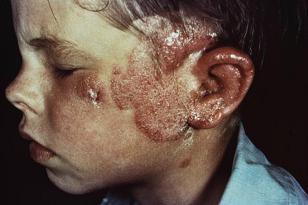I was listening to Howard Stern yesterday morning, as I normally do, and I was shocked to hear them talk about Howard’s cousin who is apparently running around buying hand held geiger counters and potassium iodide to ward off radiation poisoning (AKA Acute Radiation Syndrome.) I never even thought about when the Japanese reactors started acting up because we are SO far away and the amount of radiation present diminishes across distance and with buildings or other such structures blocking it. That being said, I wanted to let people know what radiation poisoning is and what you can do to prevent it.
What is Acute Radiation Syndrome (ARS)?
It is caused by a large amount of radiation exposure quickly and can cause a whole slew of health issues that effect your blood, GI system, and neurovascular systems. And the symptoms can include a low blood count (anemia), nausea and vomiting, loss of appetite, abdominal pain, dizziness, headache, and loss of consciousness. As well, you can get reddened, blisters that form on the skin post exposure.
What are sources of radiation?
There are natural sources, nuclear medicine, medical x-rays, radiation placed inside the body and numerous other sources. The nuclear reactor breakdown in Japan was clearly unexpected and is a huge source of radiation exposure for people in Japan at this time
Bottom line?
Here in the US we are at a very low risk of ARS and there is no need to start taking potassium iodide (KI) and worrying at this point. For all of you in other parts of the world, assess your risk and talk to your HCP about your own prevention strategy. If you have concerns talk to your HCP about pros and cons of taking KI and you may want to keep some IN CASE of a nuclear emergency near where you live. But please don’t start taking KI without talking to an HCP first!
Yours in Good Health
B



